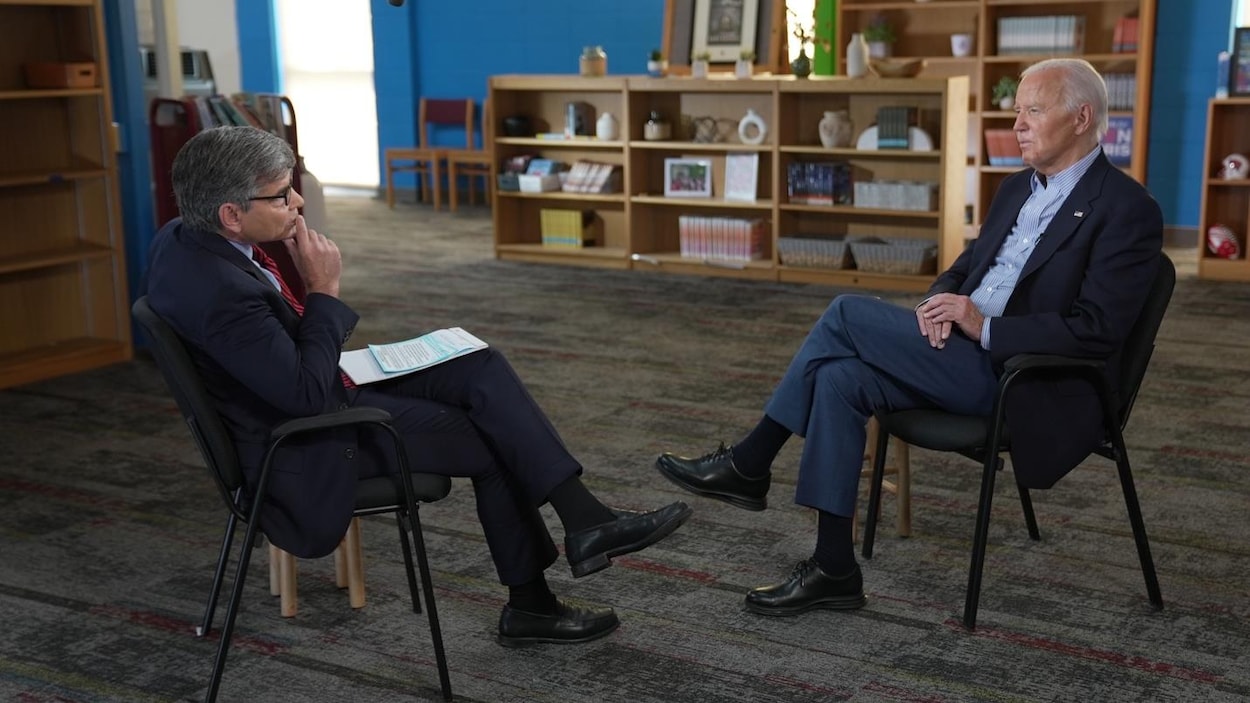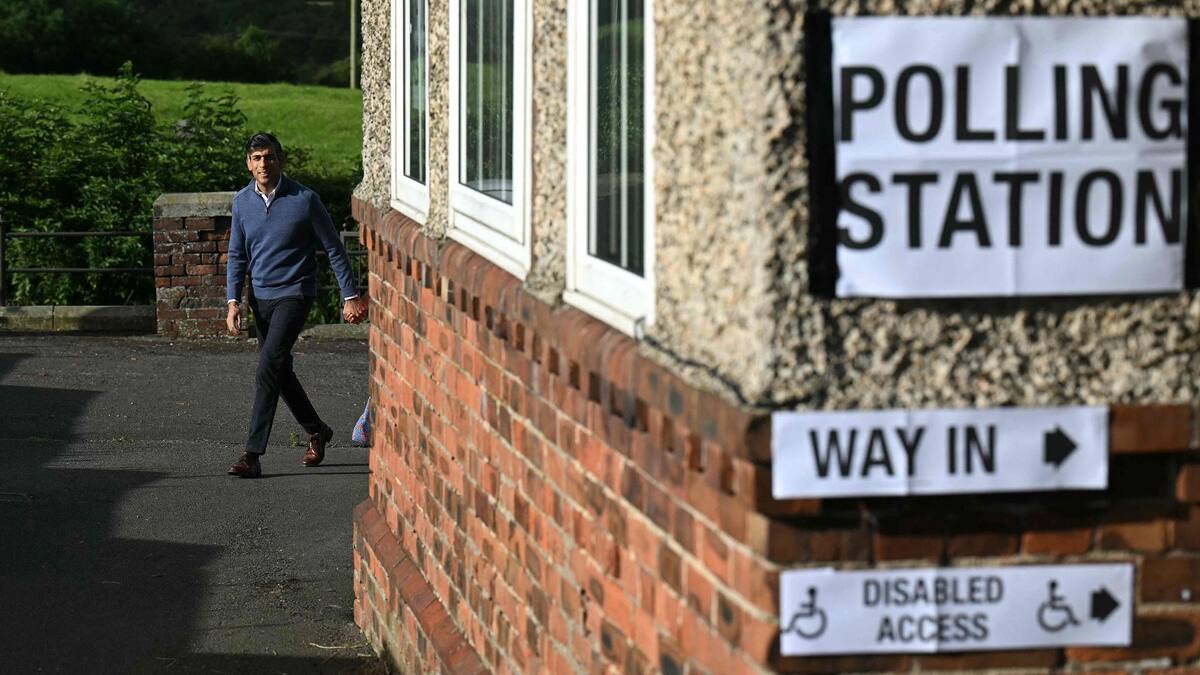Voters in the United Kingdom are casting their ballots on Thursday in a legislative election that threatens a heavy defeat for the Conservative Party, which has been in power since 2010, in favor of the center-left Labor Party, which raises cautious hope.
• Read also – British Elections in Numbers
• Read also – The Rise of the Far Right: The British Exception
After five prime ministers, austerity, a cost-of-living crisis and a battered NHS, the Conservatives had attracted so much grievance from the British public that they had only one ambition in the final days of the campaign: to try to prevent Labour from getting a “supermajority”.
Barring any drama, it is Keir Starmer, the 61-year-old former Labour lawyer, who will be tasked by King Charles III with forming a government on Friday, having refocused his party and promised a return to “seriousness” at the helm.
His arrival at Downing Street would be a moderate arrival, when the far right is knocking on the door of power in France, and when the possibility of Donald Trump returning to the White House looms.
“Change. Today you can vote for,” wrote Keir Starmer, who entered politics just nine years ago.
• Read also: Who is the future British Prime Minister Keir Starmer?
He voted on Thursday morning in north London, arriving hand-in-hand with his wife, Victoria.
Conservative Prime Minister Rishi Sunak cast his vote early this morning in his northern England constituency, with his wife Akshata Murthy. In X, he threatened higher taxes “for the rest of your life” because of Labour.
“Everything went wrong.”
Estimates are expected when polls close at 10pm (9pm GMT) with results expected until the early hours of the morning.
“It’s time for a change, isn’t it?” said Peter Warren, a 43-year-old sales manager, who met AFP at St Albans station on the outskirts of the British capital. “I’m hopeful but I’m not sure it’s going to get that good,” he said, reflecting the caution of many of his compatriots about the expected turnover.
In south London, Mark Bevington, a 52-year-old accountant, welcomes the prospect: “The fact that the new government has had the opportunity to think, when it was in opposition, about what it wanted to do seems healthy to me.”
Having returned from living in Australia, 32-year-old writer Ianthe Jacob says “everything is wrong” in the UK, citing the state of the public health system and the way transgender people are treated. “How can a developed country get to this point?” she asks near her polling station in the east of the capital.
About 46 million voters are heading to the polls to renew the seats in the 650-seat House of Commons, in a single-member vote for the main parties.
While the results of this election seem to leave no room for doubt, questions remain about the extent of the defeat of the Conservatives, who have been leading by about twenty points for months in the opinion polls, or even about the result of the UK Immigration Reform Party, which opposes former Brexit champion Nigel Farage.
According to the latest YouGov study, Labour would win 431 seats in Parliament compared to 102 for the Conservatives – a majority not seen since 1832. The centrist Liberal Democrats would win 78 seats, and the UK Reform Party would win three, allowing Nigel Farage to enter the House of Commons after seven failures.
Rain and mistakes
For Rishi Sunak, the fifth Conservative prime minister since 2010, this general election, announced in the rain at the end of May, represents the end of a campaign that has turned into an ordeal.
The 44-year-old investment banker and former finance minister has accumulated a series of blunders and appears to lack political acumen, cutting short his appearance at the 80th anniversary celebrations of the Normandy landings and delaying a response to suspicions of fraudulent betting in his camp on the scheduled date of the election.
In contrast, Keir Starmer has highlighted his humble origins – a nurse mother and toolmaker father – in contrast to his millionaire opponent. He has promised to manage public spending very tightly, without raising taxes on the majority of British people.
He is counting on renewed stability, state interventions and infrastructure investments to revive growth and restore public services.
He wants to be tough on immigration and move closer to the European Union – without joining it, as Brexit debates have divided the UK.
His wisdom has allowed him to rally support in business circles and a section of the conservative press such as The Sun. But the prestigious centre-right daily Times declined to comment, which is extremely rare.

“Total coffee aficionado. Travel buff. Music ninja. Bacon nerd. Beeraholic.”










More Stories
Joe Biden's Interview Wasn't Enough to Reassure Democrats | US Election 2024
Classified Documents | Judge Refuses to Drop Charges Against Trump Co-Defendant Walt Nauta
Hurricane Beryl Now Heading Towards Texas On Hurricane Alert